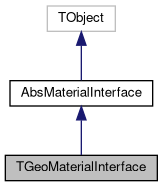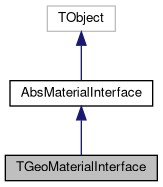 |
Belle II Software
release-08-01-10
|
 |
Belle II Software
release-08-01-10
|
AbsMaterialInterface implementation for use with ROOT's TGeoManager. More...
#include <TGeoMaterialInterface.h>


Public Member Functions | |
| bool | initTrack (double posX, double posY, double posZ, double dirX, double dirY, double dirZ) override |
| Initialize the navigator at given position and with given direction. More... | |
| Material | getMaterialParameters () override |
| double | findNextBoundary (const RKTrackRep *rep, const M1x7 &state7, double sMax, bool varField=true) override |
| Make a step (following the curvature) until step length sMax or the next boundary is reached. More... | |
| virtual void | setDebugLvl (unsigned int lvl=1) |
Protected Attributes | |
| unsigned int | debugLvl_ |
AbsMaterialInterface implementation for use with ROOT's TGeoManager.
Definition at line 35 of file TGeoMaterialInterface.h.
|
overridevirtual |
Make a step (following the curvature) until step length sMax or the next boundary is reached.
After making a step to a boundary, the position has to be beyond the boundary, i.e. the current material has to be that beyond the boundary. The actual step made is returned.
Implements AbsMaterialInterface.
Definition at line 70 of file TGeoMaterialInterface.cc.
|
overridevirtual |
Initialize the navigator at given position and with given direction.
Returns true if the volume changed.
Implements AbsMaterialInterface.
Definition at line 38 of file TGeoMaterialInterface.cc.